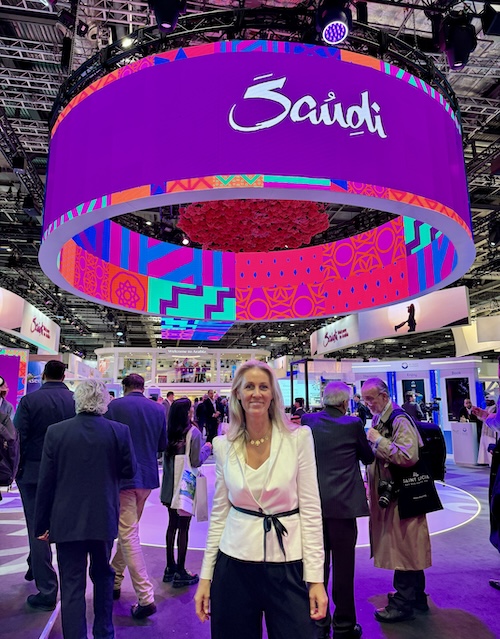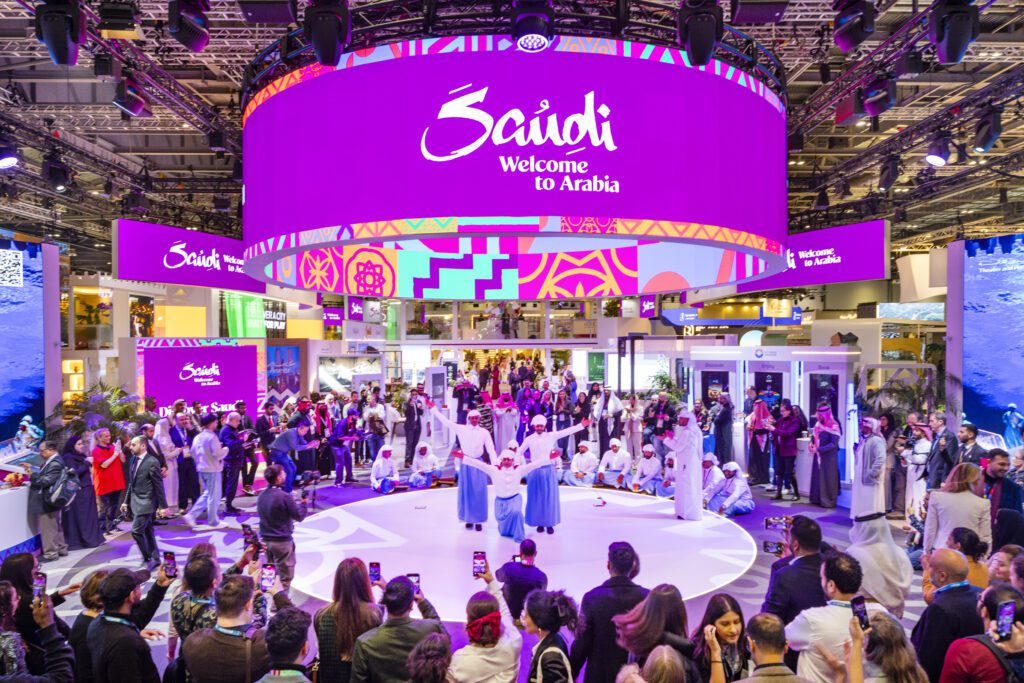“We shouldn’t come here, take the money and run; we should come here to invest,” said Richard Attias, founder of the Future Investment Initiative (known as Davos in the desert). He spoke at the International MICE Summit in Riyadh in December. The news comes as the Kingdom of Saudi Arabia is actively attracting global event companies.
Saudi law requires foreign companies to have a Saudi partner holding at least 25% of the shares. Therefore, for companies focusing on Saudi Arabia’s rapidly expanding events market, establishing strong business partnerships with local companies is a necessity.
At the International MICE Summit in December, Informa chief executive Lord Stephen Carter revealed that more than half of the company’s revenue comes from partnerships. This comes just before his role as leader of the world’s largest event organizer launches the Middle East version of flagship fintech event Money20/20, which kicked off in Riyadh, Saudi Arabia, in September this year. This is the latest campaign launched through Tahaluf, a strategic alliance with the Saudi Arabian Federation of Cyber Security and Programming.
The scale of the opportunity is enormous. At the summit alone, 12 new events were announced, and three major global organizers committed to opening offices in Saudi Arabia. But technical expertise and international experience are not enough. Success also requires the ability to build and maintain deep collaborative relationships.
From supplier to strategic partner


Dorothee Anjos, managing director of Multilem Middle East, said understanding partner expectations is also crucial. The company has been working with the Saudi Tourism Authority (STA) since Saudi Arabia opened its doors to tourism 2 years ago.019.
The evolution of Multilem’s relationship with STA reflects the depth of cooperation Saudi Arabia desires. “The CEO always tells us it’s great to see us grow together,” Anjos said. “It symbolizes that we are partners, not just suppliers.”
This partnership mentality is reflected in grand gestures and subtle expectations. At November’s World Travel Market (WTM) in London, Multilem unveiled STA’s ambitious vision for the show’s largest stand, a massive 23,465 sq. ft. destination display.
The company also builds and manages stands for three other Saudi Arabian destinations exhibiting at WTM: AlUla, Diriyah and Souda.
“You really need to understand their culture and read between the lines,” Anjos explains. What Western companies might consider beyond service is just a baseline in Saudi Arabia:
- Available 24/7
- Booth management
- Traditional hospitality (for example, offering Saudi Arabian coffee and dates)
Managing these expectations has helped Multilem transcend its origins as a Portuguese stand builder. Today, the company has eight offices around the world, with its Dubai office handling more than 50% of its business, a shift driven in part by its partnership with Saudi Arabia.
Recently, STA collaborated with Multilem to launch large-scale consumer tourism activities in China and India, the two largest consumer markets in the world. The stakes are particularly high in China, where the eight-day Saudi Arabian Tourism Festival is held in Beijing’s famed Temple of Heaven Gardens. It was only the second event ever allowed to take place at the historic venue.
The future of Saudi Arabia’s partnership
As Saudi Arabia pursues its ambitious Vision 2030 program, which includes large-scale projects such as NEOM and Red Sea, the importance of the partnership model will only grow. The Kingdom’s goal of reaching 70 million international tourist arrivals by 2030 is partly driving its global leadership in business events.
For Western companies, success requires more than just providing services or fulfilling contractual obligations. It requires cultural fluency, adaptability and a long-term commitment to the market, including reinvesting profits locally.
Attias emphasized at the MICE Summit that companies must “reinvest profits and create ecosystems.”

